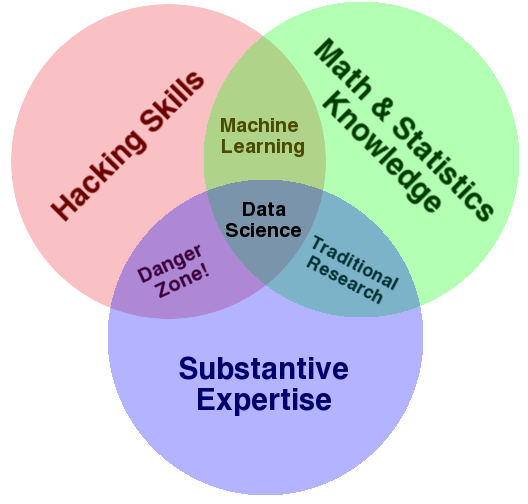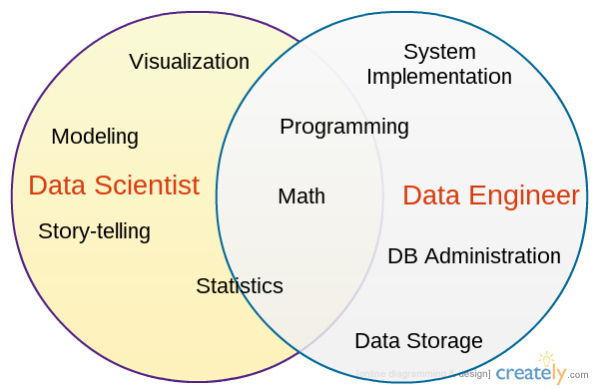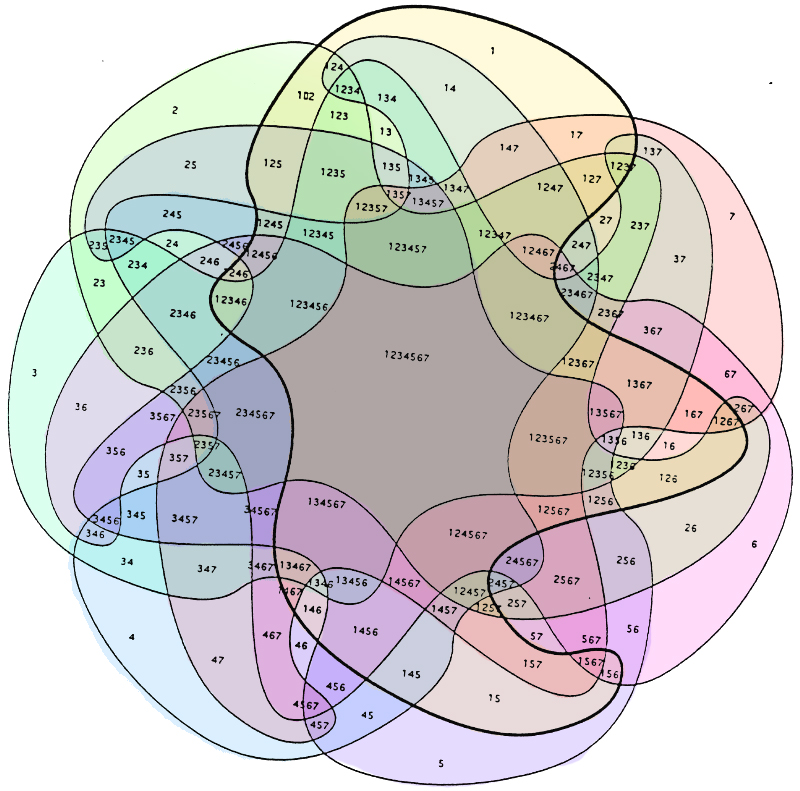 Introductory Career Tips
Introductory Career Tips
Week 11 | Lesson 3.1
LEARNING OBJECTIVES
After this lesson, you will be able to:
- Understanding the current state of Data Science, and where you can fit
- Getting a grasp of the interview process
- Building a solid strategy to getting hired
STUDENT PRE-WORK
Before this lesson, students will need to be able to:
- Complete GA's data science curriculum
INSTRUCTOR PREP
Before this lesson, instructors will need to:
- Be prepared to discuss your own experiences, case out a few interview questions, possibly be prepared to do some ad-hoc interview role-playing etc.
LESSON GUIDE
| TIMING | TYPE | TOPIC |
|---|---|---|
| 5 min | Opening | It's graduating time! |
| 10 min | Introduction | Do you REALLY know what a Data Scientist is? (Cause I don't) |
| 15 min | Demo | Reading the secret code of data science job opportunities |
| 35 min | Guided Practice | Knowing Yourself and Going through an Interview |
| 25 min | Independent Practice | Assembling your list of opportunities |
| 5 min | Review/Recap | So here we are... |
Opening - It's graduating time! (5 mins)
If you've made it this far, congrats! We've covered a ton of topics and equipped you with the training and techniques you'll need to find your new home/job. The question is: where will that be?
The field of data science has recently started to divide and multiply, a sign of maturity (as well as crazy growth). This phenomenon has made understanding data science job opportunities and job postings more complicated. We'll try to untangle this web and bring you clarity on your path forward, ultimately building your game-plan/road map towards gainful employment in the field of data science!
Introduction: Do you know what a Data Scientist is? (10 mins)
So in conducting research on data science, you probably came across something like this:

However, since that time, the domain of "data science" has started to split (sort of like a virus); now there are roughly 2-3 roles that previously would have been labeled "data science". For instance, there's a separate role called "data engineer" that you may find in startups or mid-sized companies:

So instead of having one intersection point at the center of our data science venn-diagram, there are now 2 or 3. If this bifurcation continues (and it undoubtedly will), imagine how the diagram may look like in the future:

So the question is: "What is a data science role?" The honest answer is: Anything the hiring entity wants it to be.
While this may sound unsettling, it's actually a useful concept that you can use to your advantage. Specifically, this gives you:
- The ability to micro-target roles with some insight/prep, allowing you to spend time digging into job-opportunities that specifically fit your unique background.
- The possibility to tailor your own role for those firms with younger/newer teams who may be amenable to some variation in their hiring goals.
Check: What are some of the trends happening in the data science field? What might be causing these trends, and what do they mean for you?
Demo: Reading the secret code of data science job opportunities (15 mins)
To the instructor: Please go through several of these info-graphics and talk through job-types, what they mean, point out some contradictions or go in more detail. For example, the info-graphics doesn't list Coca Cola as a firm that hires data scientist, but more than likely that means these jobs are not labeled "data scientists" for reasons we've discussed. Alternatively, you'll have to dig further into different data science related roles within larger companies (e.g. marketing instead of IT).
Check out this info-graphic from Data Camp that maps the state of the industry (as of 2016)
This infographic summarizes many of the roles that have sprouted out of the singular "data science" title. In truth, most of these roles could be interchanged depending on the company (i.e. a "data scientist" at Pied Piper may be called a "data engineer" at Hooli).
You'll need to do some background by digging into a firm you like to see how big/old it is, find out who runs the team you're interviewing for, and determine where this team "sits" in the "org chart". All of these factors will be critically important to finding the "right" fit.
Take the following info-graphic for example:

Let's say you saw a role for The Coca Cola Company that advertised a data architect, as opposed to a data scientist. What can you discern from this fact? Does Coca Cola not hire data scientists? Seems unlikely, since Coke's biggest tool for their product is marketing, and data science is heavily used in many top-tier marketing operations.
The more likely answer is that the term "data scientist" simply isn't used by The Coca Cola Company, who may assign other titles to those types of roles and responsibilities. In fact, we find roles titled "Decision Scientist", with a job description that asks for people who can "apply statistical models to business problems, perform business analysis, and create data visualizations". Sounds like data science to me.
Remember, larger corporations tend to have embedded organizational structures and terms that may differ from those used by smaller, more agile startups. There are so many companies, you are sure to bump into a few with anachronistic names for these roles.
Another factor to consider is where a role "sits" in the organization. For example, most "Data Architect" roles are probably part of the IT department. Depending on your strengths or interests, that may or may not be the best fit for you.
Larger firms are great for new members of the field in that they tend to provide more opportunities for training, mentoring, and advancement, but are more likely to limit you to a few specific tasks (compared to smaller startups). When interviewing with larger companies, look for roles that sit in marketing, operations, centers of excellence - anywhere you will be able to regularly interact with business decision makers.
For smaller to mid-sized firms, you won't have to worry about this as much. They tend to be "flatter" and a bit more flexible in their responsibilities.
Check: Weigh the pros and cons of working in a junior role for smaller vs larger companies
Do Your Research
So how will you find out about all this? Aside from researching on your own, consider the first or second phases of a typical interviewing process:

Try to figure out the role's structure/team in the initial phone screen. Most firms will conduct this as their first point of contact. Depending on the role, phone screens may or may not be conducted by someone internal to the company, and they may not be able to answer complex questions (beyond what's in their script). If that's the case, your pointed/detailed questions may cause them to suggest they connect you with someone on the team.
Next, there may either be a technical interview or - more likely - a sort of hybrid team interview where they ask you some light technical questions/puzzlers but also provide more information about themselves and what they are looking for in the role, in order to establish a good fit. This step depends on the firm and their circumstances.
This step will help give you a sense of how you might fit into the rest of the team (if there is one).
Remember to practice before these first few touch points, since first impressions go a long way! The key to doing well in the interview is to know yourself and sell your strengths.
Guided Practice: Knowing Your Strengths (35 mins)
To the instructor: Select a few "real world" examples from LinkedIn or some other job board, and go through this example with the class using your own background; how you would go about picking a role to interview for? How do you use your own skills/experiences to prep?
Before you go through an interview, and before you find yourself in an interview, you need to do some introspection.
Many sources will advocate a strategy of crazy intense interview prep, like taking a standardized test. That is good advice on one level, but it's also highly inefficient. You shouldn't go into your preparation blindly.
Instead, think about what makes you unique in a data science role. Some of you will have more of a technical background, where others may come from business or the arts. Whatever your individual background, think about how that can be combined with data!!
The best advice for any profession is to stack your skills. If you have a fine arts background well then now you are a fine artist who can create bad*ss data visualizations. Did you come from sales? Well then now you can provide a lot more strategic direction to guide entire sales teams with your predictive models.
Spend a few minutes making a simple box chart like below. The first 3 columns are your capabilities, the last three are the requirements listed by the opportunity. Use this to list your top / most-desired job opportunities.
Note: If you don't have any ideas there, spend a few minutes listing your skills and then get online and start searching for positions using those skills as keywords.
To go over a quick example, here are some data science-related requirements listed by a current job board:
Key Responsibilities:
- Interact with stakeholders to identify critical questions that need to be answered in order for the Analytics function to provide effective KPI’s -- actionable insights, rather than just reports*
- Conduct analysis and data modeling to draw insights that drive critical decision making and to uncover subscriber patterns, user consumption, and behavior
- Analyze data to identify outliers, missing, incomplete, and/or invalid data Ensure accuracy of all data from source to final deliverable by creating automated quality checks
- Assist in the coordination of data collection from various sources which may include contacting various groups outside the company to resolve questions, inconsistencies, and/or obtain missing data
- Assist in the development of analytic tools, KPIs, dashboards, and systems to help build out the analytics platform
- Create, automate, and maintain reports and visualizations (e.g., behavioral trends across customer segments, global consumption of VOD and live stream, digital media attribution, etc.) Work with data warehousing team to design optimal data architecture for BI tools
- Work as a client contact for analytics, partnering with various departments to identify priority dashboards and reports to better serve the company Design and build dashboards and automated reports with embedded visualizations
Desired Traits:
- Proven track record of identifying and highlighting key insights, signals, and trends deep within the underlying data
- Well-rounded individual with the ability to write code to query and transform both unstructured and structured data
- Experience publishing reports using visualization and presentation tools
- Should enjoy generating actionable insights by mining and modeling data and be passionate about answering challenging questions and telling stories with data and visualizations
- Self-motivated, attentive to detail, and driven to continuously improve analytics
- Experience with SQL, SAS, Python, Hadoop, Google Analytics, Excel, Tableau, SPSS, or R
Check: What keywords do you note in this description? How do these compare to your list of strengths?
Keep in mind that this example is a VERY generic job profile (stripped of other identifying characteristics). Still, let's drill down further. Go back to the example. What other features can you extract from the text, after a closer reading?
Instructor: The following is some sample commentary you can use to discuss the job board example given.
This seems to be a quantitatively light data science role from a company that is relatively new or inexperienced with data science. It'd be perfect for an student who is not as technical but may have some substantial business background to leverage. The dead give-aways are as follows: The tools section, - notice that it lists pretty much EVERY tool in existence, but does not go into great detail for any specific one (i.e, both Python and R include extensive possible software stacks). The fact that both SPSS and SAS are included, indicates this opportunity is probably housed in a more "traditional" big corporation, as they are legacy tools that were popular a decade or more ago. Or it could indicate that the job poster doesn't necessarily know what tools are useful/valuable/necessary, and so they are throwing the kitchen sink in. There are no references to machine learning or similar procedures, but a lot of text dedicated to a role that suggests they will be data stewards, helping to build dashboards and computing KPIs etc. The firm is probably trying to leverage an existing internal data warehouse and needs someone to do some basic statistical analysis on their data.
Independent Practice: Be An Interview Jedi! (30 minutes)
While many interview questions vary by industry and business (and we can't go over ALL the potential questions you might get in a typical interview), we will use this time to review 2 "open ended" questions indicative of some potential interview topics.
SETUP Get into teams of 3 or 4. You'll be working together to brainstorm a solution and then create some brief presentation materials accordingly.
GOAL The following tasks will NOT provide you with specific data. Instead, you will need to tackle the problem at a high level and solve for the logic required to build a working model.
REQUIREMENTS After white-boarding the problem with your group, use a presentation tool to create quick-and-dirty slides that address the following:
Explain the problem statement as you see it, what data you would pull, and how you would pull it. Ultimately, what columns of data would you provide in your table?
The cleaning process you would go through with the data. List any best practices you may know and provide the logic for your procedures.
Provide at least one model you would use to solve the problem. Diagram this in a simple flow chart. Include any data transformations, libraries you plan to use, data-frames or containers you'll be utilizing.
Any modifications to the procedure(s) you've listed above, and why? (E.g. what outputs do you prioritize, what elements to run).
The business value you believe this procedure will provide.
Note: Step 5 is arguably the most critical - even in an interview! Your work as a data scientist should always demonstrate business value. Once you've gone through steps 1 - 5, make sure that to lead with your content from step 5.
TASK Pick one of the following "take-home" style questions to tackle as a group:
Question 1
Suppose you work at an established dating/social network site. How would you detect real users from bots/fake users? Note: your product connects to Facebook/Linkedin/other network sites to provide a simple first layer of authentication.
Question 2
Suppose you are working for an online marketplace that just opened a new "pantry" sub-market to sell grocery goods. In order to beat out local stores, the company wants to provide superior review-metrics for their goods. You're in charge of improving the the user-reviews. For one product you sell, a popular take-home microwavable pizza, reviewers have rated it 4.5/5. However, your manager wants more granular review metrics for these types of products and has proposed expanding the rating from simple "stars" to multiple metrics based on "flavor", "price", & "other". Is a simple mean an appropriate aggregation technique for these new metrics? Why or why not? What would you propose to add (if anything), and how would you measure it?
Present After your group has put together a brief deck, present your "results" to the rest of the class and field any questions. Remember, your audience wants to see how your solution demonstrates the skills you've learned (in this course) and also provides clear business value!
Review/Recap (5 mins)
We've gone ahead and looked deeper into the current state of data science. We see that data science is not a monolithic field, and is in fact quite diverse. Thus, to effectively target roles that are right for you and do the appropriate prep, you need to know
- What the firm wants/expects in a role.
- What specific strengths you can offer that role.
Your time is limited! Don't randomly apply to every job labeled "data science" - some of these require additional years of experience or may be poor company/culture fits. Instead, do your homework! Reach out to your networks, make your strengths visible online and in-person, and conduct extensive research on any company you want to apply to.
Blindly preparing and applying for every role will take twice as long and be half as effective as preparing SMART.
ADDITIONAL RESOURCES
This is an excellent podcast discussing backgrounds, experiences, and tips from real data scientists in industry. It's a great interview series to listen to in your free time! Also, it gives you more perspective on the diversity of folks working in data science and the types of roles available.
One of the best things you can do to get the "Lay of the land" is to scour LinkedIn, Angel List, and Indeed. When you find a company, look up the people working there. Who would be on your team? Who would interview you for the role? Find out their interests and backgrounds and look for things you have in common! You'd be surprised how effective networking is - and if you are only 1-2 degrees of separation from someone, ask for an introduction!